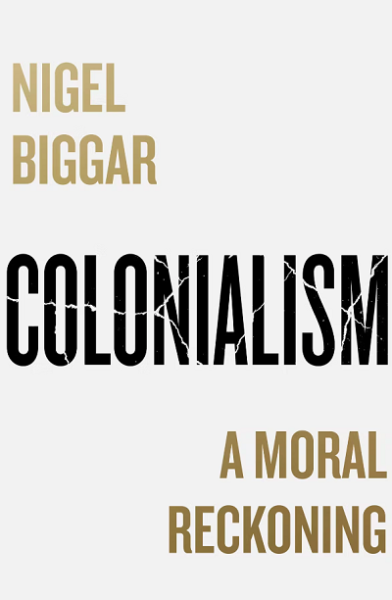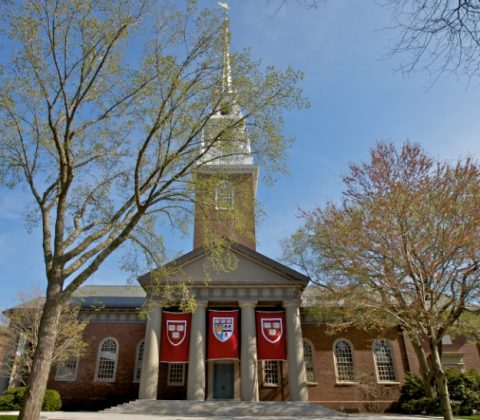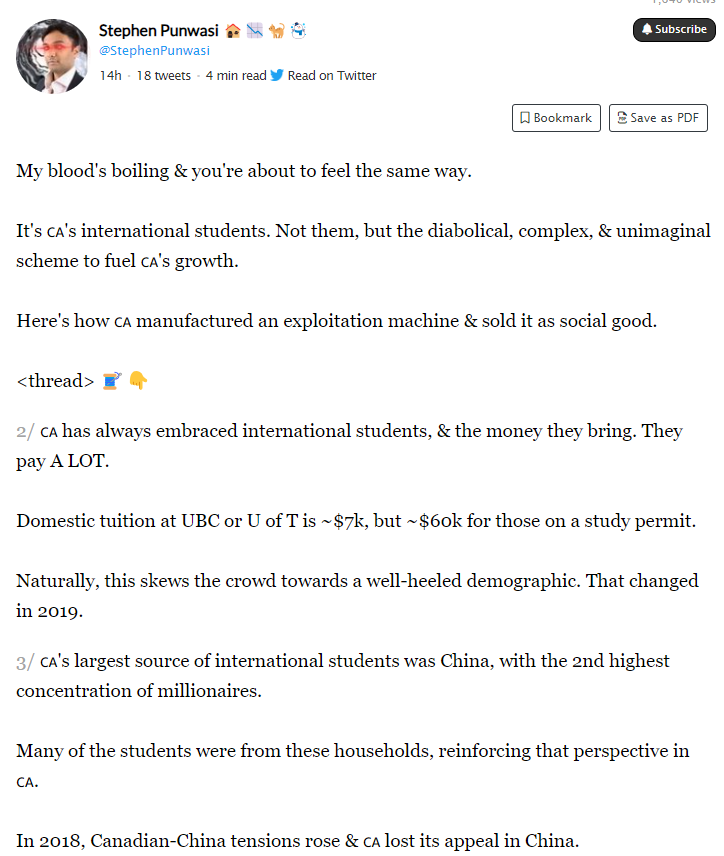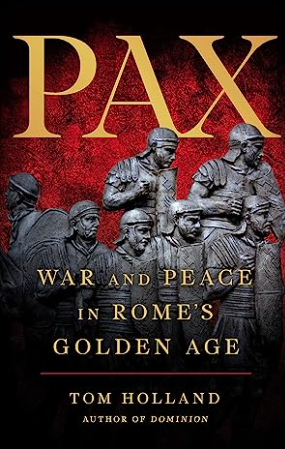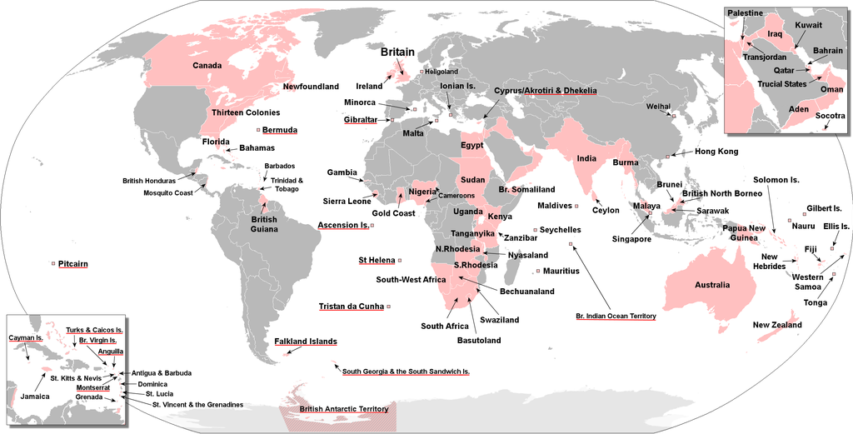There’s a reason “social science” is all horseshit, and that reason is: surveys. All of this stuff is based on surveys, and as it happens, I have quite a bit of experience of being on the receiving end of these. You see, back in grad school I was involved with a young lady in the Soash Department — I know, I know, but a man has certain needs, ya feel me? — and so I was always on call to take whatever goofy little tests they dreamed up, as a favor to her and her equally spastic hardcore Lefty friends. Anecdotes aren’t data, of course, but I’ve got a lot of anecdotes, and I can tell you — anecdotally — that there are two huge, self-reinforcing problems with these surveys: a) respondent pool, and b) design.
The respondent pool is, overwhelmingly, college kids taking them for class credit. Knowing what we know about Basic College Girls, who again are the majority of all college kids, is it any surprise that the results just happen to confirm the conclusions the slightly older, but no less Basic, Grad Student Girls were looking for? Throw in the design problem — questions about as subtle as “Do you think all races should be treated equally, or are you a monster?” — and you’ve got scientific proof that Liberals are good people and Conservatives suck.
Severian, “Is vs. Ought II: Moral Foundations Theory”, Rotten Chestnuts, 2021-04-20.
January 28, 2024
QotD: Never depend on “surveys” for real-world issues
January 19, 2024
Those passionate Houthi and the Blowfish fans
Chris Selley wonders why the rest of the Canadian legacy media are being so careful to proactively curate and “contextualize” the violent and hateful message of the pro-Hamas and pro-Houthi protesters in our cities:

The Houthi Ansarullah “Al-Sarkha” banner. Arabic text:
الله أكبر (Allah is the greatest)
الموت لأمريكا (death to America)
الموت لإسرائيل (death to Israel)
اللعنة على اليهود (a curse upon the Jews)
النصر للإسلام (victory to Islam)
Image and explanatory text from Wikimedia Commons.
The record will show I had little sympathy for the Ottawa convoy crowd, especially once they had made their point and refused to go away. You can’t occupy the downtown of a G7 capital for a month. Sorry, you just can’t.
At the same time, I cringed at the media’s fevered attempts to cast the entire crowd as neo-Nazi oafs, based on what seems to have been two observed flags — one Confederate, one Nazi.
I recalled this while watching video footage of protesters in Toronto over the weekend chanting “Yemen, Yemen, make us proud! Turn another boat around!” Because the Houthis, who control Yemen’s Red Sea coast and have been waging war on commercial shipping, are about as neo-Nazi as it gets in the world nowadays.
The movement’s official slogan: “Allahu Akbar! Death to America! Death to Israel! Curse the Jews! Victory for Islam!” As if to drive home the point, there is ample video evidence of Houthi fighters chanting that slogan with their hands raised skywards in a Nazi salute.
The Houthis use child soldiers (as video evidence also makes horrifyingly plain). They are literally slavers. I have seen it suggested, by way of context, that they really don’t have that many slaves. Just a few slaves. It’s so hard to get good help.
But I haven’t seen anyone try to “contextualize” the Houthi slogan, the way Palestinian supporters will tell you “from the river to the sea” isn’t a call for Israel’s destruction and cheering for “intifada” doesn’t mean further terrorist attacks against Jews. Perhaps it’s just too big a job for even the most dedicated and creative of apologists.
Outside of the Postmedia empire, so far as I can see, not a single Canadian media outlet has seen fit to mention the chanting in Toronto streets in support of a rabidly antisemitic death cult. You can read several articles, however, about how Canadian media are terribly biased against the Palestinian cause. It’s ludicrous.
A nice little illustration, as the National Post‘s Tristin Hopper noted in November: When the convoy crowd appropriated Terry Fox’s statue, just opposite Parliament Hill, for their “mandate freedom” message, the Laurentian bubble nearly burst with righteous fury. When pro-Palestinian protesters draped a keffiyeh over Fox’s shoulders and had their kids pose with him, there was all but total silence.
Of course, flamboyant media double-standards aren’t the worst of our problems.
January 12, 2024
Slavery in the Roman World: A Lecture Given in September 2023
seangabb
Published 24 Sept 2023A lecture given in absentia to the 2023 meeting of the Property and Freedom Society in Bodrum. The subject is Slavery in the Roman World. It covers these issues:
Introduction: Sean Gabb, face to camera – 00:00:00
Classical Liberalism, the Natural Law and Slavery – 00:06:38
The Growth of Roman Slavery – 00:16:27
Slave Markets – 00:21:20
The Valuation of Slaves – 00:24:07
Slave Occupations – 00:29:41
The Treatment of Slaves: Galen and the Broken Cup – 00:33:04
Sex and Slavery – 00:38:32
Other Mistreatment of Slaves – 00:00:00
Escape and Punishment – 00:45:49
Slaves and the Arena – 00:48:10
The Moral Effects of Slavery – 00:49:18
The Slave Revolts – 00:58:20
Manumission – 01:03:14
Conclusion and Bibliography – 01:10:20
(more…)
January 11, 2024
Pushing back against the Colonialism Narrative
At Samizdata, Brendan Westbridge praises Nigel Biggar’s 2023 book Colonialism: A Moral Reckoning:
He examines the various claims that the “de-colonisers” make: Amritsar, slavery, Benin, Boer War, Irish famine. In all cases he finds that their claims are either entirely ungrounded or lack vital information that would cast events in a very different light. Amritsar? Dyer was dealing with political violence that had led to murder. Some victims had been set alight. Anyway, he was condemned for his actions by the British authorities and, indeed, his own standing orders. Slavery? Everyone had it and Britain was the first to get rid of it. Benin? They had killed unarmed ambassadors. Irish famine? They tried to relieve it but they were quite unequal to the size of the task. In the case of Benin he comes very close to accusing the leading de-coloniser of knowingly lying. The only one of these where I don’t think he is so convincing is the Boer War. He claims that Britain was concerned about the future of the Cape and especially the Simonstown naval base and also black rights. I think it was the pursuit of gold even if it does mean agreeing with the communist Eric Hobsbawm.
He is far too polite about the “de-colonisers”. They are desperate to hammer the square peg of reality into their round-hole of a theory. To this end they claim knowledge they don’t have, gloss over inconvenient facts, erect theories that don’t bear scrutiny and when all else fails: lie. Biggar tackles all of these offences against objectivity with a calmness and a politeness that you can bet his detractors would never return.
The communists – because they are obsessed with such things and are past masters at projection – like to claim that there was an “ideology” of Empire. Biggar thinks this is nonsense. As he says:
There was no essential motive or set of motives that drove the British Empire. The reasons why the British built an empire were many and various. They differed between trader, migrant, soldier, missionary, entrepreneur, financier, government official and statesman. They sometimes differed between London, Cairo, Cape Town and Calcutta. And all of the motives I have unearthed in this chapter were, in themselves, innocent: the aversion to poverty and persecution, the yearning for a better life, the desire to make one’s way in the world, the duty to satisfy shareholders, the lure of adventure, cultural curiosity, the need to make peace and keep it, the concomitant need to maintain martial prestige, the imperative of gaining military or political advantage over enemies and rivals, and the vocation to lift oppression and establish stable self-government. There is nothing morally wrong with any of these. Indeed, the last one is morally admirable.
One of the benefits of the British Empire is that it tended to put a stop to local wars. How many people lived because of that? But that leads us on to another aspect. Almost no one ever considers what went on before the Empire arrived. Was it better or worse than went before it? Given that places like Benin indulged in human sacrifice, I would say that in many cases the British Empire was an improvement. And if we are going to talk about what went before what about afterwards? He has little to say about what newly-independent countries have done with their independence. The United States, the “white” (for want of a better term) Commonwealth and Singapore have done reasonably well. Ireland is sub-par but OK. Africa, the Caribbean and the Indian sub-continent have very little to show for themselves. This may explain why Britain needed very few people to maintain the Empire. At one point he points out that at the height of the Raj the ratio of Briton to native was 1 to 1000. That implies a lot of consent. Tyrannies need a lot more people.
The truth of the matter is that talk of reparations is rooted in the failure of de-colonisation. If Jamaica were a nicer place to live than the UK, if Jamaica had a small boats crisis rather than the UK then no one would be breathing a word about reparations or colonial guilt. All this talk is pure deflection from the failure of local despots to make the lives of their subjects better.
Biggar has nothing to say about what came after the empire and he also has little to say about how it came about in the first place – so I’ll fill in that gap. Britain acquired an empire because it could. Britain was able to acquire an Empire because it mastered the technologies needed to do it to a higher level and on a greater scale than anyone else. Britain mastered technology because it made it possible to prosper by creating wealth. That in itself was a moral achievement.
QotD: Slavery in the United States
Of all the tragic facts about the history of slavery, the most astonishing to an American today is that, although slavery was a worldwide institution for thousands of years, nowhere in the world was slavery a controversial issue prior to the 18th century. People of every race and color were enslaved – and enslaved others. White people were still being bought and sold as slaves in the Ottoman Empire, decades after American blacks were freed.
Everyone hated the idea of being a slave but few had any qualms about enslaving others. Slavery was just not an issue, not even among intellectuals, much less among political leaders, until the 18th century – and then it was an issue only in Western civilization. Among those who turned against slavery in the 18th century were George Washington, Thomas Jefferson, Patrick Henry and other American leaders. You could research all of the 18th century Africa or Asia or the Middle East without finding any comparable rejection of slavery there. But who is singled out for scathing criticism today? American leaders of the 18th century.
Deciding that slavery was wrong was much easier than deciding what to do with millions of people from another continent, of another race, and without any historical preparation for living as free citizens in a society like that of the United States, where they were 20 percent of the population.
It is clear from the private correspondence of Washington, Jefferson, and many others that their moral rejection of slavery was unambiguous, but the practical question of what to do now had them baffled. That would remain so for more than half a century.
In 1862, a ship carrying slaves from Africa to Cuba, in violation of a ban on the international slave trade, was captured on the high seas by the U.S. Navy. The crew were imprisoned and the captain was hanged in the United States – despite the fact that slavery itself was still legal at the time in Africa, Cuba, and in the United States. What does this tell us? That enslaving people was considered an abomination. But what to do with millions of people who were already enslaved was not equally clear.
That question was finally answered by a war in which one life was lost [620,000 Civil War casualties] for every six people freed [3.9 million]. Maybe that was the only answer. But don’t pretend today that it was an easy answer – or that those who grappled with the dilemma in the 18th century were some special villains when most leaders and most people around the world saw nothing wrong with slavery.
Incidentally, the September 2003 issue of National Geographic had an article about the millions of people still enslaved around the world right now. But where is the moral indignation about that?
Thomas Sowell, The Thomas Sowell Reader, 2011.
November 19, 2023
November 13, 2023
Carefully trained and shaped hollow people
At Ricochet, David Foster talks about how today’s university students have become … hollow:
I’ve been writing for years about the rise of toxic ideologies on America’s college campuses – totalitarian, anti-Israel, outright anti-Semitic – but still have been surprised by what has happened in these places since October 7. We need to discuss the reasons why it’s gotten so bad.
A few days ago, someone republished an essay, written in 2016, by a professor who has taught at several “elite” colleges. Excerpt:
My students are know-nothings. They are exceedingly nice, pleasant, trustworthy, mostly honest, well-intentioned, and utterly decent. But their brains are largely empty, devoid of any substantial knowledge that might be the fruits of an education in an inheritance and a gift of a previous generation. They are the culmination of western civilization, a civilization that has forgotten nearly everything about itself, and as a result, has achieved near-perfect indifference to its own culture. It’s difficult to gain admissions to the schools where I’ve taught – Princeton, Georgetown, and now Notre Dame. Students at these institutions have done what has been demanded of them: they are superb test-takers, they know exactly what is needed to get an A in every class (meaning that they rarely allow themselves to become passionate and invested in any one subject); they build superb resumes. They are respectful and cordial to their elders, though easy-going if crude with their peers. They respect diversity (without having the slightest clue what diversity is) and they are experts in the arts of non-judgmentalism (at least publically). They are the cream of their generation, the masters of the universe, a generation-in-waiting to run America and the world.
And when someone has devoted the first 18 years of their lives in large part to jumping through hoops in hopes of making a good impression on some future college admissions officers … and then, in many cases, having to get good ratings from professors whose criteria are largely subjective … that someone is unlikely to develop into a person with a strong internal gyroscope. Quite likely, they are likely to be subject to social pressures and mass movements.
Someone at X said that the Cornell student arrested for making threats against Jewish students was probably just trying too hard to fit in and win approval of his peers and took it a step too far. My view is that there’s no just about it … the desire to fit in and win approval is very often the reason why people commit evil acts. I’m reminded of something CS Lewis said: “Of all the passions, the passion for the Inner Ring is most skillful in making a man who is not yet a very bad man do very bad things“.
The above sentence is from a talk that Lewis gave at King’s College in 1944. Also from that address:
And the prophecy I make is this. To nine out of ten of you the choice which could lead to scoundrelism will come, when it does come, in no very dramatic colours. Obviously bad men, obviously threatening or bribing, will almost certainly not appear. Over a drink, or a cup of coffee, disguised as triviality and sandwiched between two jokes, from the lips of a man, or woman, whom you have recently been getting to know rather better and whom you hope to know better still — just at the moment when you are most anxious not to appear crude, or naïf or a prig — the hint will come. It will be the hint of something which the public, the ignorant, romantic public, would never understand: something which even the outsiders in your own profession are apt to make a fuss about: but something, says your new friend, which “we” — and at the word “we” you try not to blush for mere pleasure — something “we always do”.
And you will be drawn in, if you are drawn in, not by desire for gain or ease, but simply because at that moment, when the cup was so near your lips, you cannot bear to be thrust back again into the cold outer world. It would be so terrible to see the other man’s face — that genial, confidential, delightfully sophisticated face — turn suddenly cold and contemptuous, to know that you had been tried for the Inner Ring and rejected. And then, if you are drawn in, next week it will be something a little further from the rules, and next year something further still, but all in the jolliest, friendliest spirit. It may end in a crash, a scandal, and penal servitude; it may end in millions, a peerage and giving the prizes at your old school. But you will be a scoundrel.
So yes, the passion for approval has always existed. But I feel sure it is much stronger, or at least has fewer countervailing forces, among people who experience today’s college admissions race and its eventual fulfillment.
The students about whom the professor wrote in the essay linked above have not only been encouraged to devote their time to hoop-jumping, they have also been told again and again that their country and their society are evil – that their ancestors were evil, and their parents are probably evil as well. And that practically all aspects of culture more than five years old, whether traditional songs and folktales or classic movies, are harmful and certainly unworthy of study except for purposes of deconstructing their bad examples. And, of course, relatively few of these students are influenced by or have seriously studied any traditional religion.
September 16, 2023
Is Canada knowingly running a massive educational swindle on poor Indian students?
If even half of what Stephen Punwasi reports here is true, then the Canadian government and higher education ministries in the provinces deserve nothing but abuse:
The thread continues:
4/
, addicted to the cash, cooked up a $148m plan to replace those students with new ones—primarily in developing countries.
Permits to students from India spiked fast… strangely fast. Who are these students? Get a spoon to bite, because this is where it gets f*cked.
5/ India is a FAST growing country, forecast to have the world’s largest middle class soon. It has wealthy families, but they aren’t moving here. An Indian university study found most students looking to study in
are from low-income farming regions & know little about it.
6/ What they “know” is what the recruiter told them: It’s filled with opportunity, automatic PR, guaranteed gov jobs, etc. Sometimes, the recruiters “get them in” to prestigious schools they could never actually get into. All lies—they’ll say anything for the commission.
7/ Recruiters tell these families their kid is brilliant & just in the wrong country. Find a way to pay their education, & all of the parents’ hard work pays off. Bet the farm, like good parents do. So they round up their savings (& sometimes relatives). They take out loans.
8/ Heck, some literally bet the farm. Oh, some recruiters know people that specialize in high interest loans secured by your farm? Super convenient. Oh, they have a secure stream of capital, a lot of it from investors in
? So lucky, what are the odds‽
9/ So the kids get to
& don’t arrive at UBC or U of T, but a private career college in a strip mall. Sometimes not even the school they applied to. Some schools popped up almost overnight, others don’t have classes some semesters, & some have no domestic students.
10/ Some are run by swell folks who are strangely close with alleged organized crime groups. Opportunity is everywhere! Anyway, once you’re registered—you can start vouching for visas, there’s no limit.
wanted this, after all.
11/ So they:
– spent $50k to go to a diploma mill;
– don’t speak english, because of testing fraud;
– have no money;
– often rent mattresses, taking 8/hr shifts w/other students;
– if this doesn’t work, their parents lose everythingA TO funeral home sends 5 dead back per month.
12/ Don’t worry.
will help, right? In 2022, it lifted the restriction of 20 hours of on-campus work, to “help”
solve its low-wage labor crisis. Those viral videos of hundreds of people waiting in line for a low-wage job interview? Those are mostly international students.
13/ To reiterate,
scoured the world for poor families. Promised opportunity if they risked everything. It turns out there was no opportunity, so now they’re stuck paying off debt while most of their income is consumed by shelter costs. It sounds familiar, but why evades me
14/ but here’s the kicker. Other countries where this scam was brewing signed an inter-country agreement to refuse unethical student visa brokering. Did
? Nope, it actively rejected it. Once again, because this is a part of its strategy.
July 28, 2023
Progressive objections to Oppenheimer
Disclaimer: I haven’t seen the movie, and have no immediate plans to do so. That said, there’s a lot of discussion about the movie, its successes and its failures and how it relates to today’s issues. Over at Founding Questions, Severian felt the need to do a proper fisking of one particularly irritating take:
This is one of two Oppenheimer stories that popped up this morning. I don’t watch tv and haven’t seen a movie in the theater in decades; I doubt I’ve seen more than a handful of “new” movies in the last ten years. So I really am not the target audience for this kind of thing, but … I don’t get it. Why is this movie such a big deal? Have they decided to simply create The One Pop Culture Thing out of whole cloth?
Anyway, let’s see what they have to say:
There’s a cabal online, and even in some professional circles, arguing that Nolan has made the bombing of Hiroshima and Nagasaki a sideshow: that Oppenheimer looks away from the devastating effects of what happened on August 6 and 9 1945.
I guess this is where the Historian in me will forever override the pop culture critic. Obviously Robert Oppenheimer knew he was developing a weapon. The difference between a nuclear bomb and a regular bomb is one of degree, not kind. American firebombing had already done to dozens of Japanese cities what Oppenheimer’s nuke did to Hiroshima. Curtis LeMay knew it, too — after the war, he said that he’d have been rightfully tried for war crimes had the outcome gone the other way. I simply cannot see how this man is uniquely culpable for anything … or if he is, then Rosie the Riveter should be held accountable for every bomber that rolled off the assembly line.
Anti-nuclear groups have been similarly disappointed, with Carol Turner from the Campaign for Nuclear Disarmament telling The Guardian that “the effect of the [Hiroshima and Nagasaki] blasts was to remove the skin in a much more gory and horrible way – in [Oppenheimer] it was tastefully, artfully presented.”
That‘s your objection? That people weren’t shown getting killed in a realistic-enough manner? Jesus Christ, do you people ever listen to yourselves? That’s fucking sick. You are a loathsome excuse for a human being, Carol Turner.
Although it says much about the morals and mechanics of war, Oppenheimer isn’t a war film: it’s ultimately about the internal conflict and persecution of one individual. To painstakingly focus on the Japanese victims would have made it an entirely different film, and one at odds with the rest of Nolan’s vision. (His fellow director James Cameron, meanwhile, is said to be planning a film on the victims of Hiroshima and Nagasaki.)
“Victims”. You keep using that word.
There is currently a trend for great cultural works, such as Oppenheimer, to be denigrated if they don’t tick certain boxes, and such complaints often come from the Left. A lack of focus on victims has been a frequent criticism: it’s an argument that gets wheeled out, for example, whenever a drama is being made about serial killers. Yet I don’t think artists are obliged to do this if it doesn’t fit into their own authorial vision.
I have to admit, I’m getting that old College Town feeling right now. The one where it feels like someone dropped some low-grade acid in my coffee, and I’m hallucinating. I know what all those words mean, but put together like that they don’t make any sense at all. On the most basic level, the objection here seems to be that movies require plots. A “drama about a serial killer”, for example (“drama” … what an odd word choice), requires murders. You know, mechanically speaking. But what does “focusing” on them add? Is it any more or less awful, learning that the dead guy killed at random by a lunatic was really into soccer and had a dog and liked classic rock?
And all this is before you consider that the most vocal critics of Oppenheimer are Leftists … the very same Leftists who are determined to fight to the very last drop of Ukrainian blood, and who seem to think that giving Zelensky tactical nukes is a super idea. Reading the Left’s pronouncements on Vladimir Putin, you’d be forgiven for thinking they’d like to nuke him twice, just to be sure.
Your concern for the “victims” of Hiroshima and Nagasaki rings a little hollow, gang, when you’ve been howling for blood 24/7 on Twitter for a year and a half.
July 9, 2023
Imperial Rome
In UnHerd, Freddie Sayers talks to historian and podcaster Tom Holland about his latest book, Pax:
To his army of ardent followers, Tom Holland has a unique ability to bring antiquity alive. An award-winning British historian, biographer and broadcaster, his thrilling accounts offer more than a mere snapshot of life in Ancient Greece and Rome. In Pax — the third in his encyclopaedic trilogy of best-sellers narrating the rise of the Roman Empire — Holland establishes how peace was finally achieved during the Golden Age, with a forensic recreation of key lives within the civilisation, from emperors to slaves.
This week, Holland came to the UnHerd club to talk about Roman sex lives, Christian morality, and the rise and fall of empires. Below is an edited transcript of the conversation.
Freddie Sayers: Let’s kick off with the very first year in your book.
Tom Holland: It opens in AD 68, which is the year that Nero committed suicide: a key moment in Roman history, and a very, very obvious crisis point. Nero is the last living descendant of Augustus, and Augustus is a god. To be descended from Augustus is to have his divine blood in your veins. And there is a feeling among the Roman people that this is what qualifies you to rule as a Caesar, to rule as an emperor. And so the question that then hangs over Rome in the wake of Nero’s death is: what do we do now? We no longer have a descendant of the divine Augustus treading this mortal earth of ours. How is Rome, how is its empire, going to cohere?
FS: It seemed to me, when I was reading Pax, that there was a recurring theme: a movement between what’s considered decadence, and then a reassertion of either a more manly, martial atmosphere, or a return to how things used to be — to the good old days. With each new emperor in this amazing narrative, it often feels like there’s that same kind of mood, which is: things have gotten a bit soft. We’re going to return to proper Rome.
TH: It’s absolutely a dynamic that runs throughout this period. And it reflects a moral anxiety on the part of the Romans that has been characteristic of them, really, from the time that they start conquering massively wealthy cities in the East — the cities in Asia Minor or Syria or, most of all, Egypt. There’s this anxiety that this wealth is feminising them, that it’s making them weak, it’s making them soft — even as it is felt that the spectacular array of seafood, the gold, the splendid marble with which Rome can be beautified, is what Romans should have, because they are the rulers of the world.
That incredible tension is heightened by class anxieties. There’s no snob like a senatorial snob. They want to distinguish themselves from the masses. But at the same time, there’s the anxiety that if they do this in too Greek a way, in too effeminate a way, then are they really Romans? And so the whole way through this period, the issue of how you can enjoy your wealth, if you are a wealthy Roman, without seeming “unRoman”, is an endearing tension. And of course, there is no figure in the empire who has to wrestle with that tension more significantly than Caesar himself.
FS: The 100-odd years that you’re covering in this volume is a period of great peace and prosperity and power, and yet at each juncture, it feels like there’s this anxiety. That’s what surprised me as a reader. There’s this sense of the precariousness of the empire — maybe it’s become softer, maybe it’s decadent, or maybe it needs to rediscover how it used to be.
TH: And, you see, this is the significance of AD 69, “the Year of the Four Emperors”, because the question is, are the cycles of civil war expressive of faults? Of a kind of dry rot in the fabric of the Empire that is terminal? Of the anger of the gods? And whether, therefore, the Romans need to find a way to appease the gods so that the whole Empire doesn’t collapse. This is an anxiety that lingers for several decades. It looks to us like this is the heyday of the Empire. They’re building the Colosseum, they’re building great temples everywhere. But they’re worrying: “Have the gods turned against us?”
And of course, there is a very famous incident, 10 years after the Year of the Four Emperors, which is the explosion of Vesuvius. And this is definitely seen as another warning from the gods, because it coincides with a terrible plague in Rome, and it coincides with the incineration (for the second time in a decade) of the most significant temple in Rome — the great temple to Jupiter on the Capitol, the most sacred of the seven hills of Rome.
Romans offer sacrifice to the gods or you pay dues to the gods rather in the way that we take out an insurance policy. And if the gods are busy burying famous towns on the Bay of Naples beneath pyroclastic flows, or sending plagues, or burning down temples, then this, to most, is evidence that the Roman people have not been paying their dues. So a lot of what is going on — certainly in the imperial centre — in this period, is an attempt to try and get the Roman Empire back on a stable moral footing.
June 9, 2023
May 29, 2023
“I’m starting to think that Just Stop Oil is a Big Oil plant”
Tom Slater on the amazing tone-deafness of the Just Stop Oil “activists”:
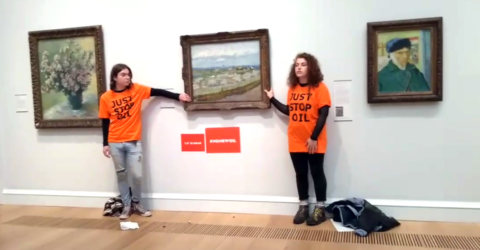
“Just Stop Oil Courtauld Gallery 30062022” by Just Stop Oil is licensed under CC BY-SA 4.0 .
I’m starting to think that Just Stop Oil is a Big Oil plant. What else could explain these campaigners’ phenomenal ability to turn the public against them and confirm their critics’ worst prejudices. Namely, that this environmental activism / amdram troupe is stuffed with upper-middle-class irritants who couldn’t give a damn about working-class people. Surely, this has got to be on purpose?
Take their recent “slow marches” through London, aimed at bringing traffic to a standstill. The whole point of these stunts seems to be to force cab drivers, delivery men and builders to sit in traffic so that these protesters can preach their miserable little gospel. And as Edred Whittingham‘s (don’t laugh) deranged antics at the Crucible recently showed us, you now can’t even escape these bourgeois millenarians during your leisure time.
That this new generation of environmentalists are almost uniformly posh is an established empirical fact. An academic survey of those involved in Extinction Rebellion – the mothership organisation from which Just Stop Oil and Insulate Britain were spawned – found, to the surprise of precisely no one, that they were overwhelmingly middle class, highly educated and from the south. A full 85 per cent of them have some form of university degree.
So what we have here is the comfortably off classes – those with sufficient free time to glue themselves to roads on a Wednesday mid-morning – forcing their weird hangups on everyone else. Time and again, when they are criticised for making people’s lives a misery, they offer only patronising lectures. “We’re so sorry that we have to disrupt the lives of ordinary people”, said Just Stop Oil’s Eben Lazarus (I know) to Vice last year, but “hopefully people will see, further down the line, that the disruption we’re causing is microscopic compared to the disruption that we’re going to face because of the climate crisis”. Translation: we know better, you cretins.
No wonder that so many now respond to these cunning stunts with instant, visceral fury. First there was the Battle of Canning Town in 2019, when east-London commuters pulled two Extinction Rebellion people down from the top of a Tube train. And as police have failed to deal with these protests – they now seem to escort rather than stop these “slow marches” – motorists have increasingly decided to take matters into their own hands. Several clips of workers clashing – sometimes physically – with Just Stop Oil activists have gone viral in the past week alone, including one of a man shoving JSOers on Blackfriars Bridge, before promptly being arrested.
The high-water mark of the Vegan cult?
In Spiked, Patrick West celebrates the passing of peak food puritanism:

“Welcome to Las Vegans and Vegetarian, Whole Foods fake meat section, Las Vegas, NV, USA” by gruntzooki is licensed under CC BY-SA 2.0 .
Over the past few years, there has been an explosion of vegan processed food appearing in supermarkets. A growing number of the population also claims to be vegan. But there are signs this trend could be going into reverse. Demand for animal-free food and drink products has collapsed over the past year. One casualty is Swedish oat-milk firm Oatly, which has recently withdrawn its dairy-free ice cream in the UK. Another is the Yorkshire sausage-making company, Heck, which has scaled-down its vegan-friendly range from 10 products to two. Smoothie-maker Innocent discontinued its dairy-free range earlier this year. Supermarket sales of meat-free products fell by £37.3million between September 2021 and September 2022, according to the consumer intelligence firm NielsenIQ.
There seems to be two main reasons. Rising inflation has been cited as one cause, as consumers have scaled back on branded and luxury eatables. Plant-based processed foods are generally more costly than the meat and dairy products they purport to replace. Another explanation is that producers of vegan food may have overestimated the size of the market for veganism, and now they are having to readjust to reality.
Whatever the reasons, we should welcome the retreat of the cult of veganism. And I use the word cult deliberately, because veganism greatly resembles not so much a lifestyle choice, but a way of life itself. It’s a faith that resonates with today’s puritanical and conformist mood.
And I should know, as someone who became a vegetarian in 1996 and has not eaten meat since. Sure, my decision aroused some mockery and derision back then, but vegetarianism had mostly stopped being regarded as weird by the mid-1990s. Ever since then, most of the opprobrium and scolding we vegetarians face comes from vegans, largely because we continue to eat eggs, cheese and milk.
For vegans, nothing must be consumed or worn that derives from animals or insects – even if there is no killing or discernible harm involved. Anything else is a feeble cop-out. Their way of thinking is absolute. In this respect, the best exemplars of the vegan movement are the animal-rights fundamentalists, PETA, whose members are well-known for their shrill, exhibitionist narcissism. Their message is simple: they are better people than you.
It’s no surprise that veganism was turbo-charged in the mid-2010s, when wokery captured the minds of so many – when absolutist, extreme thinking, and the competition to be purer than the next man or woman, took over. The trans movement echoes this rush to extremes. It demands the transformation of your entire body. Indeed, bodily self-mutilation and mortification of the flesh have long been practised by religious fundamentalists.
May 14, 2023
QotD: The original tabloid journalist
Tabloid journalism begins with W.T. Stead, who as editor of the Pall Mall Gazette in the 1880s brought news and scandal to the newly literate masses, transforming public culture and politics with it.
The son of a Congregationalist preacher, Stead grew up in a strict religious household in Northumberland, in a home where theatre was “the Devil’s chapel” and novels “the Devil’s Bible”. Taught to read by his father, the newsman’s nonconformism would inform his campaigns after he moved from the Northern Echo to the Gazette in London.
Stead was most of all famous for the first great newspaper investigation, in 1885, “The Maiden Tribute of Modern Babylon“, on the scandal of child prostitution. Stead had bought a girl called Eliza for £5, on the premise that she was to be taken to a brothel on the continent, using quite dubious methods that got him sent to jail for three months.
Despite this, the story succeeded – a national scandal which led to a change in the law, the age of consent raised from 13 to 16. The idea of English girls being trafficked into sex outraged and horrified the public, Stead’s story imprinted itself deeply into the public psyche, to the extent of influencing George Bernard Shaw’s Pygmalion — thus, Eliza Doolittle.
On the continent it helped to inspire a genre of vaguely pornographic literature about the sexual perversion rife in England, a fantasy that belied the fact that late Victorian London was not a nest of vice, relatively speaking. Most measures of squalor and child abuse had declined in the 19th century and a teenage girl by the end of the century was relatively safe, compared to a predecessor in almost any era; public moral outrage offered protection, even if it could be unforgiving for those same girls who transgressed.
Stead would become the most famous journalist of the era, so renowned that in 1912 he was invited to New York by the US President to attend a conference — and so booked a ticket on a famously unsinkable new liner. He was last seen helping women and children trying to get on to lifeboats, and, true to the chapel ethos of his parents, gave away his lifejacket. He was among the 1,500 who lost their lives on the Titanic.
Ed West, “Our Modern Babylon”, Wrong Side of History, 2023-02-11.
May 12, 2023
Dispatch from the front lines of the Imperial History Wars
In Quillette, Nigel Biggar recounts how he was conscripted into the Imperial History Wars:
It was December 2017, and my wife and I were at Heathrow airport, waiting to board a flight to Germany. Just before setting off for the departure gate, I could not resist checking my email one last time. My attention sharpened when I saw a message in my inbox from the University of Oxford’s Public Affairs Directorate. What I found was a notification that my “Ethics and Empire” project, organized under the auspices of Oxford’s McDonald Centre for Theology, Ethics & Public Life, had become the target of an online denunciation by a group of students; followed by reassurance from the university that it had risen to defend my right to run such a thing.
So began a weeks-long public row that raged over the project, which had “gathered colleagues from Classics, Oriental Studies, History, Political Thought, and Theology in a series of annual workshops to measure apologias and critiques of empire against historical data from antiquity to modernity across the globe.” Four days after I flew, the eminent imperial historian who had conceived the project with me abruptly resigned. Within a week of the first online denunciation, two further ones appeared, this time manned by professional academics, the first comprising 58 colleagues at Oxford, the second, about 200 academics from around the world. For over a fortnight, my name was in the press every day.
What had I done to deserve all this unexpected attention? Three things. In late 2015 and early 2016, I had offered a partial defence of the late-19th-century imperialist Cecil Rhodes during the Rhodes Must Fall campaign in Oxford. Then, in late November 2017, I published a column in the Times, in which I referred approvingly to Bruce Gilley’s controversial article “The Case for Colonialism”, and argued that the British (along with Canadians, Australians, and New Zealanders) have reason to feel pride as well as shame about their imperial past. Note: pride, as well as shame. And a few days later, third, I finally got around to publishing an online account of the “Ethics and Empire” project, whose first conference had in fact been held the previous July.
Contrary to what the critics seemed to think, the Ethics and Empire project is not designed to defend the British Empire, or even empire in general. Rather, it aims to select and analyse evaluations of empire from ancient China to the modern period, in order to understand and reflect on the ethical terms in which empires have been viewed historically. A classic instance of such an evaluation is St Augustine’s The City of God, the early-fifth-century AD defence of Christianity, which involves a generally critical reading of the Roman Empire. Nonetheless, Ethics and Empire was conceived with awareness that the imperial form of political organisation was common across the world and throughout history until 1945; and so does not assume that empire is always and everywhere wicked; and does assume that the history of empires should inform — positively, as well as negatively — the foreign policy of Western states today.
The territories that were at one time or another part of the British Empire. The United Kingdom and its accompanying British Overseas Territories are underlined in red.
Composed by “The Red Hat of Pat Ferrick” via Wikimedia Commons.Thus did I stumble, blindly, into the Imperial History Wars. Had I been a professional historian, I would have known what to expect, but being a mere ethicist, I did not. Still, naivety has its advantages, bringing fresh eyes to see sharply what weary ones have learned to live with.
One surprising thing I have seen is that many of my critics are really not interested in the complicated, morally ambiguous truth about the past. For example, in the autumn of 2015, some students began to agitate to have an obscure statue of Cecil Rhodes removed from its plinth overlooking Oxford’s High Street. The case against Rhodes was that he was South Africa’s equivalent of Hitler, and the supporting evidence was encapsulated in this damning statement: “I prefer land to n—ers … the natives are like children. They are just emerging from barbarism … one should kill as many n—ers as possible.” As it turns out, however, initial research discovered that the Rhodes Must Fall campaigners had lifted this quotation verbatim from a book review by Adekeye Adebajo, a former Rhodes Scholar who is now director of the Institute for Pan-African Thought and Conversation at the University of Johannesburg. Further digging revealed that the “quotation” was, in fact, made up from three different elements drawn from three different sources. The first had been lifted from a novel. The other two had been misleadingly torn out of their proper contexts. And part of the third appears to have been made up.
There is no doubt that the real Rhodes was a moral mixture, but he was no Hitler. Far from being racist, he showed consistent sympathy for individual black Africans throughout his life. And in an 1894 speech, he made plain his view: “I do not believe that they are different from ourselves.” Nor did he attempt genocide against the southern African Ndebele people in 1896 — as might be suggested by the fact that the Ndebele tended his grave from 1902 for decades. And he had nothing at all to do with General Kitchener’s concentration camps during the Second Boer War of 1899–1902 (which themselves had nothing morally in common with Auschwitz). Moreover, Rhodes did support a franchise in Cape Colony that gave black Africans the vote on the same terms as whites; he helped to finance a black African newspaper; and he established his famous scholarship scheme, which was explicitly colour-blind and whose first black (American) beneficiary was selected within five years of his death.

